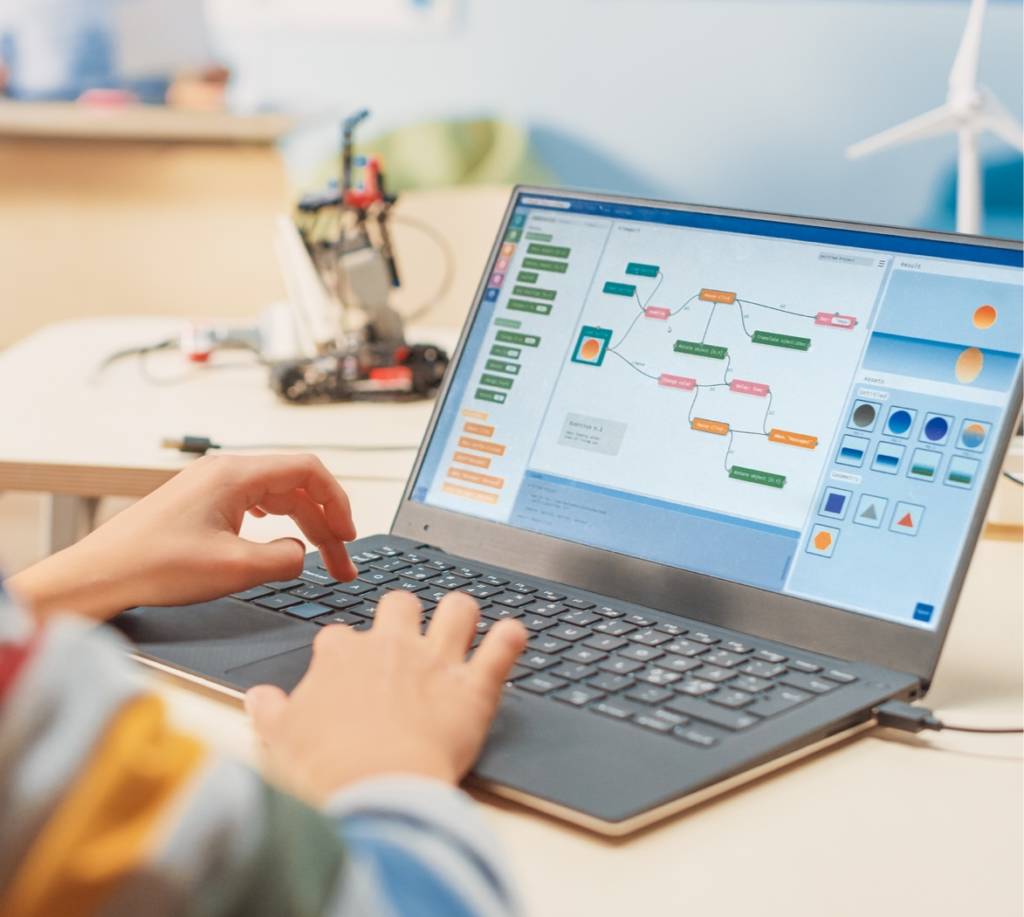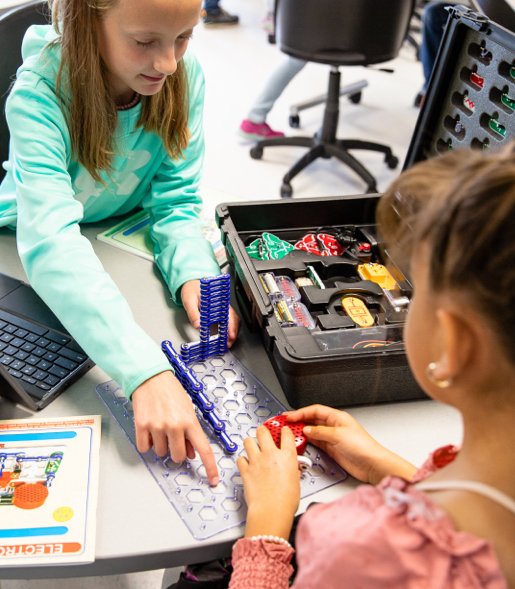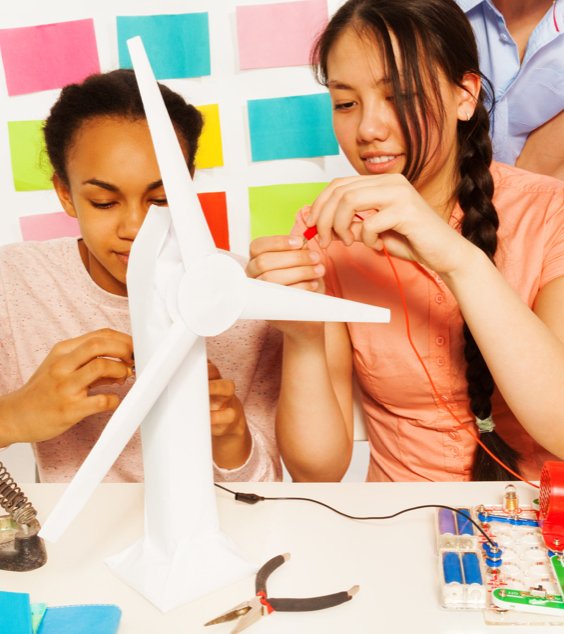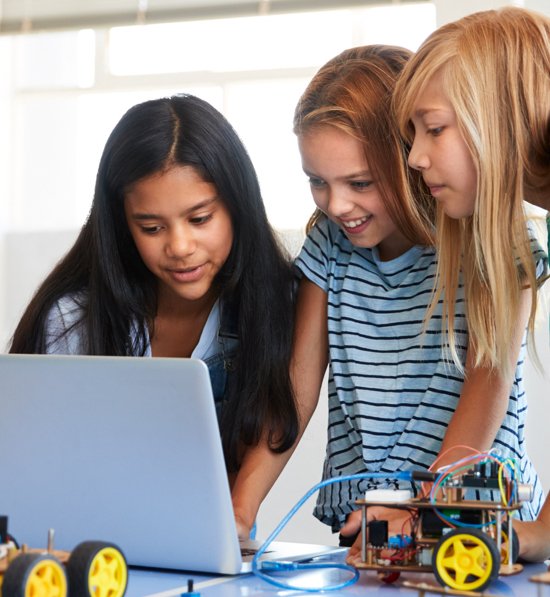Research Based
Meaningful learning begins when students experience the world around them.
It’s a fact: Today’s students must be prepared for careers that do not yet exist.
Our goal is to help learners acquire the skills necessary to adapt to changing technologies and workforce needs as they navigate an ever-evolving future.
Rooted in research surrounding the constructivist theory of education, we have more than 30 years of experience in educational technology. As such, we’re driven to empower learners through experiential, personalized, and collaborative learning experiences.

Preparing Students for Future Success
While content knowledge is valuable, it is essential that students are also equipped with the skills that support lifelong success, such as communication, collaboration, and critical thinking. In addition to gaining those critical skills, students also learn perseverance as they work through their “failures.” To develop this and other essential skills, we:
Repeatable Process
Provide a repeatable SmartLab Learning Process that empowers learners to make decisions and solve complex problems.
Technology-rich Classroom
Provide a technology-rich classroom that improves engagement and knowledge retention.
Provide Opportunities
Provide opportunities to make learning more effective for students who have different needs and different paces of learning.
Student Self-reflection
Infuse self-reflection into students’ learning process as an opportunity to assess old knowledge and compare it with their new experiences.
Training and Coaching
Train facilitators to coach learners not only on content knowledge, but how to develop skills for success.
Creating Collaborative Learning Spaces
Koohang, et al., (2009) describe a constructivist model as “learning activities that include collaboration, cooperation, and multiple perspectives.” To ensure this happens in a SmartLab Learning solution, we:
Intentionally design learning spaces where students work in pairs to solve problems of their own choosing.
Emphasize that collaboration is just as important as the outcome of any project.
Teach the value of learning from peers, which helps learners communicate, think critically, and express themselves creatively.
Fill each lab space with engaging technologies that allow learners to understand the math and science behind the tools—ensuring they’re able to adapt to new tools in the future.


Providing Authentic Real-World Experiences
Research has shown that students are better able to understand a concept if they have a hand in constructing it (Greywind, 2020). To incorporate this concept into SmartLab Learning, we provide learners with:
- Projects that make complex math and science concepts concrete through the process of hands-on, minds-on work.
- Age appropriate pre- and professional tools.
- An environment that feels closer to what they will experience in the real world than in most of their classrooms.
- The freedom to solve problems that are relevant to their experiences and community.
- Opportunities for learners to follow their curiosity, evoking deeper connections and an increased investment in learning.
Supporting Students with a Whole Child Approach

SmartLab Learning is a student-led, constructivist learning program that we pioneered in 1987. At its core, SmartLab Learning is steeped in hundreds of years of education theory and constructivism but the focus on collaboration, communication, scaffolding, and self-reflection is relevant as it provides learners with essential next-gen stills.
After reading this document, you will:
- Gain an understanding of the SmartLab Learning approach
- Identify how we meet generational needs
- Understand our collaborative, experiential approach
- Learn about the guiding principles we use when developing every learning solution
research based coaching
Training From Teacher to Facilitator
In constructivist theory, the educator plays an essential, but dynamic, role: they act as a coach, guide, and mentor who observes students’ processes, provides feedback, and assesses student learning. Through our extensive professional development, we train educators to:
- Be malleable, flexible, and willing to seek new learning opportunities for their students.
- Become facilitators of learning.
- Allow students time for reflection while monitoring their performance.
- Encourage collaboration and effort, while motivating their students.
- Help students work past obstacles, without providing direct instruction.
- Provide formative assessment, as well as adjust and intervene with students when necessary.
- Help students to form connections and aid them in overcoming perceived limitations.
Change the way your students engage with math and science—in and outside the classroom.
Find out how SmartLab Learning programs can help your school.

